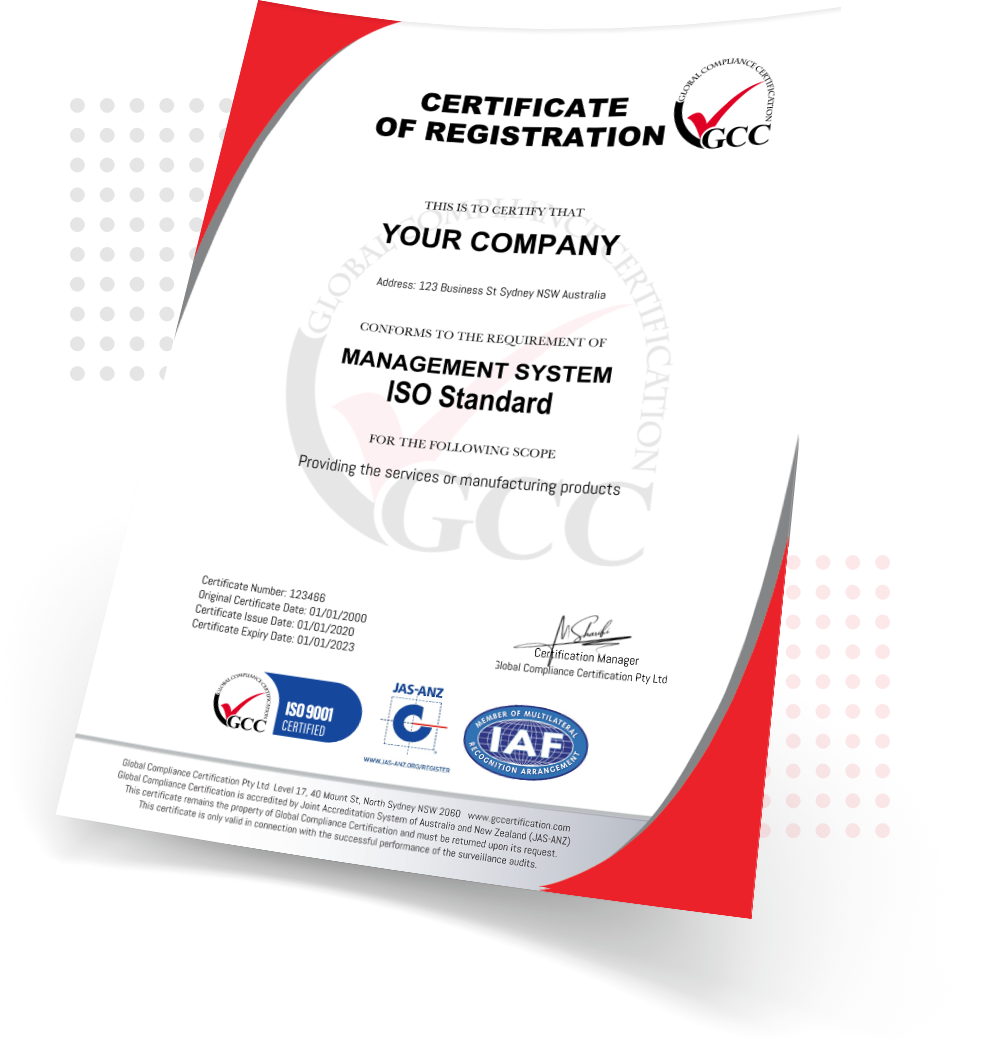Hazard Analysis Critical Control Points (HACCP)
Maintaining effective supply chain controls for your business.
What is HACCP?
HACCP – General Principles of Food Hygiene CXC 1-1969, Rev. 2020, is a guideline that provides a framework of general principles for producing safe and suitable food for consumption by outlining necessary hygiene and food safety controls to be implemented in production (including primary production), processing, manufacturing, preparation, packaging, storage, distribution, retail, food service operation and transport of food, and where appropriate, specific food safety control measures at certain steps throughout the food chain.
Quick Quote
Fill out the form below to find out more

HACCP Principles
This is the initial step in the process and involves analysing your food supply chain for potential physical, chemical, or biological hazards. Something is considered a hazard when it may be considered harmful or unsafe for human consumption.
By actively recording the hazards within your businesses processes, you’re able to put controls in place to mitigate the risk of these hazards negatively impacting your business, and more importantly, your customers.
When considering your food manufacturing process, a ‘Critical Control Point’ (CCP) is a particular instance within that process that aims to mitigate the risk of a potential hazard occurring.
For example, this could be things like labelling, cleaning and sanitising, or regular equipment checks.
Closely associated with CCPs are their respective Critical Limits. These are tolerances that outline what is and isn’t acceptable. This could be a temperature range or a frequency of checks on equipment that provide a measurable and actionable assessment for compliance with your CCP.
These are the methods that you use to assess your CCPs are within the tolerances set by your Critical Limits. How will you measure the CCPs and with what frequency?
This principle outlines the process to be taken should a CCP exceed its tolerance range and becomes a hazard. A common example would be discarding a portion of food after it has been exposed to a temperature outside the critical limits for a specified length of time.
Creating and implementing the procedures that outline potential hazards and then control against them is the responsibility of all businesses in the food supply chain to ensure that all food products that make it to customers are safe to consume.
The final principle is to ensure that all these processes, including the tolerances, and corrective actions, are meticulously recorded to ensure compliance with food health and safety legislation, standards, and best practices.
Benefits of HACCP Certification
- Sustainable food safety assurance
- Greater satisfaction among customers and employees
- Attracts investment, enhances brand reputation and removes barriers to international trade within the food industry
- Provides an advantage over competitors who are not accredited
- Greater economy through process improvement, higher return on assets and greater profitability
- Increases buyer, retailer and consumer confidence within the food industry
- Manage food safety risks across the whole supply chain
- Align with ISO 22000 food safety management system
Note: This program is not accredited by JAS-ANZ.
Certification Process
Certification involves GCC assessing your organisation in order to ascertain that management systems meet the requirements of one or more recognised standards. Becoming certified to a nationally or internationally recognised standard is of great benefit to an organization. It improves overall performance, builds confidence within stakeholder groups and broadens the scope of new opportunity.
Application/ Contract
- Application for certification by client
- GCC will review and provide certification proposal
- Client accepts the agreement and return to GCC
- Audit dates will be booked
- GCC conducts Gap Analysis (optional)
Certification Audit/ Transfer
- Stage 1 Audit, The Audit team will assess documentation and readiness of management system for Stage 2 Audit
- Stage 2, Certification Audit, Audit team will assess implementation of system and will verify any issues outstanding from the Stage 1 Audit.
- Organisation will be recommended for Certification after review and positive decision by the independent GCC certification Authority,
- A Certificate will be issued
Maintaining certification
Surveillance Audits
Each issued certificate has a three-year life period. Upon certification, an audit program will be created for regular audits over the three-year period. These audits confirm company’s on-going compliance with specified requirements of the standard. At least one surveillance audit per year is required.
Read our policy for use of Certification Marks
Re-Certification
Re-Certification
The certification expires within 3 years and a re-certification Audit will be conducted prior to the expiry date to ensure that Management System is maintained.
GCC Training
Empower your team with our self-paced efficient training.







